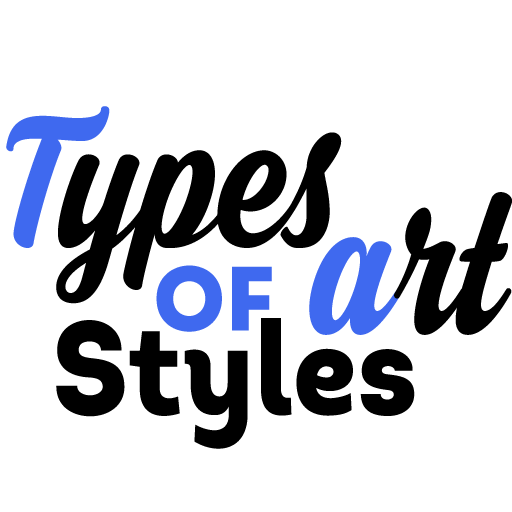Essay: what it is, definition, characteristics, parts of an essay, how to write an essay
Contents
What is the essay subgenre?
It is one of the subgenres of the didactic genre, where the content is responsible for addressing, analyzing and evaluating a particular topic from a text written in prose. Its rigidity and seriousness is aimed at presenting an argued opinion on a particular topic, which may vary according to the environment or discipline to which it applies.
There is no particular length that governs the length of an essay, since they can be very short texts to large texts covering even several volumes in relation to the same topic. It is important to bear in mind that nowadays, the essay is a type of text that has become a fundamental part of education, since it allows students to express their ideas and opinions in a reasoned way on a given topic.
Meaning of the sub-genre essay
The term -essay- comes from exagium, a Latin term that refers to “act of weighing something”. It is from there that it is a text that refers to the practice of specifying or demonstrating something.
Definition of the sub-genre essay
Ultimately, we can define the essay as a subgenre of literature that is responsible for developing a specific topic in a free way in which the author expresses his opinion based on a series of arguments that he presents according to the topic in question. Its subjective writing allows it to use a flexible structure.

What is the function of the essay?
The purpose of this type of text is to present an argued opinion in relation to a specific topic, based on the support provided throughout the text. In this way, the practice leads to a didactic character in which a reflection is presented, the elements are incorporated and then the idea presented at the beginning is checked. All this with the aim of generating interest in the reader. In some cases they can be reflective.
History and origin of the essay subgenre
Although in antiquity a series of indications appear from writers such as Plutarch, Seneca and Cicero, it is not until the appearance of Michel Eyquem de Montaigne with whom the term is founded that will gather the opinions of a great variety of writers according to an immensity of topics up to the present time. Thus, the essay begins to develop during the Renaissance, motivated by an exploration of the “I” from the outside world around him, where fundamental changes emerge in social relations, intellectual changes, among others.
The work entitled The Essays of Montaigne, Meditations in Prose, published in 1580, will be the work that inaugurates as such this literary subgenre that has been worked and cultivated until today, since it allowed a new activity not expressed in its entirety: the writing of an opinion on a specific topic, a means that will allow, later, to begin to develop and stimulate critical views and positions on various issues.
Characteristics of the essay subgenre
Below we will see key characteristics and aspects to delve deeper into this literary subgenre:
Subjectivity: an essential aspect that gives meaning to the essay is subjectivity, since its fundamental basis of composition. In the essay the author exposes his own opinion, his point of view in relation to the topic in question, according to it, he makes a series of judgments and assessments that build and argue his idea and reflection, moving away from the objective character and based on his own sustained thoughts.
Topics: one of the main characteristics of this subgenre is that it can cover a wide range of topics. Although most essays are written in terms of a literary work, the truth is that this is not the only field in which they have been used since their appearance. In other words, the author can write an essay on whatever his or her topic of interest is, whether it is in disciplines or fields such as literature, philosophy, economics, politics, history, culture, sociology, other artistic fields, etc.
Length: as mentioned, the essay does not have a rule that defines its length, but it is left to the free choice of the author. Although it can generally be a few pages long, this is not a limiting factor for its length.
Freedom of writing: another important aspect of the essay has to do with the absence of established rules for its writing, since this subgenre does not have a series of rules that determine its composition, however, there is a guide through which the author presents his idea, develops it and demonstrates it to reach the conclusion, a structure of argumentation that is permeated by the free style of the author and the way he wants to develop the theme of the essay. Therefore, we speak of a flexible structure.
Argumentation: it is the basis of the essay, since it is the way in which the author can express his ideas and opinions in relation to the topic in question, where the reasons for the issue are presented and the premises that will build the foundation of the essay are explained.
Type of audience: due to the diversity of topics and areas in which the essay is used, the type of audience may vary, being of general interest or for a specific educational activity.
Parts of the essay subgenre
It is a guiding structure on which the author can base his essay for the presentation of his opinion in relation to the topic he is evaluating and that will allow him to guarantee the expression of the judgment in a correct way, where he is the one who forges his own style.
The parts of the essay are:
Title: the title of the essay in some cases may include, if it is the case, the title of the work against which the position is made, however, many authors prefer to build a title based on their main argument to round all the content of the essay.
Introduction: these are the first paragraphs of the essay in which the topic that will be evaluated throughout the text is presented. The author presents an initial overview of the topic to be discussed, also presenting possible precedents, sources or other references. In general, a first image of the topic to be evaluated in the development of the essay.
Thesis: refers to the central idea of the essay, the specific opinion held by the author, which will be defended in the course of the text through the different points of reference and arguments.
Development: this is the central part of the essay in which the author builds, based on the arguments, his own reasoning that allows him to specifically evaluate the topic he questions. This part of argumentation can be persuasive, that is, it seeks a kind of conviction within what is said so that the reader feels interested and accepts the inclination, or focus on an argumentation following the system of reasoning, which would also achieve the conviction based on the primary understanding of the reader.
Showing a personal opinion implies developing a good argument, which has bases, possible previous approaches of other people or figures of relevance in the discipline and, thus, analyzing the topic to be shown with the author’s voice.
Conclusion: it is the final part of the essay in which the whole idea is developed and the thesis is demonstrated, a general summary of the main ideas and arguments that were exposed during the development of the text is made. After all the previous analysis, the conclusion must be concrete and give account of the thesis stated at the beginning of the essay as a defense of the primary idea.
Types of the essay subgenre
As we have mentioned, the essay can be applied in a great variety of disciplines, hence it is possible to distinguish a series of modalities in which it is developed according to its particular function in the field of action. Thus, the types of essay are:
Literary essay
This is the most common and the one from which other types of essays are beginning to be developed. In particular, this first type refers to an argumentative text that, according to its style, contains artistic elements, since it addresses issues from the subjectivity properly related to a literary work or an element of this type that judges from a personal experience or perspective. It is also called poetic essay because of the presence of stylistic resources and literary figures.
Critical essay
It is a type of essay that requires greater rigor, since its depth of analysis implies a more detailed process with a complete research beforehand. The critical essay must be supported by evidence that is exposed from a thorough study of the topic to be discussed.
Philosophical essay
It is a type of essay that focuses on all kinds of philosophical topics, among them, topics that relate the experience of the human being, the dimensions of existence such as life, solitude, death, feelings, meaning, etc. These have logical arguments for their assertions. The author includes his own experience and approaches the essay from transcendental methods that often lead to a philosophical current.
Argumentative essay
Although all essays have argumentation, this modality refers in particular to a type of text that intends to support a hypothesis through arguments, where subjectivity is much reduced, since theories and evaluations of authors or referents are used to argue the initial idea.
Expository essay
It refers to a type of essay in which the topics are much more complex and its objective is inclined to a judicious explanation where all the details and elements of a topic are exposed with the intention that such topic or concept is understood by the reader. It differs from the others because of its formative intention through teaching.
Historical Essay
The content of this essay, as its name suggests, directly links historical facts about which the author can freely deal with expressing his opinion in relation to issues that come into interaction with historical data.
Scientific essay
It is characterized by its academic rigor where the purpose is to deepen on a specific topic from theoretical arguments that addresses issues from the generality with a much broader interpretation, where each of the statements that are made in the course of the essay are supported from theories exposed.
Sociological essay
This type of essay is characterized by the fact that the topics it deals with are directly related to society, where it can consider dimensions such as social problems, cultural manifestations that have had great importance in social development, among other important aspects. In addition, this type of essay may contain ideas that are based on scientific theories, which is why it has been considered, in many cases, a scientific essay.

How to write an essay?
Although it will depend on the field and the particular intentions of the type of essay you want to develop, we can take into account the following:
Choosing the topic: the first thing to do is to choose the topic we want to address, the one on which we want to investigate and present our point of view. As far as possible, it is recommended to take a delimited topic that allows a critical and thorough development of this, since being very broad, the author would have difficulties for the process.
Research: once the topic to be written about has been chosen, it is advisable to start researching important sources. This will depend on the type of essay you want to deal with, especially when we are talking about scientific essays that require scientific theoretical references.
Brainstorming: it is always advisable to make a brainstorming on a separate sheet of paper about everything that we want to put forward in the essay. This will help us not only to avoid forgetting any thought, but it can also allow us to keep an order on which we can develop the ideas so that none of them escape.
Set a structure: according to the previous idea, if you chose to put all your ideas, you can review them so that, according to an order, you can develop them and thus create a structure that allows you to address what you need while maintaining a constructive thread that facilitates the understanding of the ideas for the central thesis.
Start writing: with the ideas and a certain order, we can start to get down to work. Start writing the essay following the order of your ideas. Look for precise connectors for each of the moments when you need them.
Review your essay: once you have it ready, it is advisable to spend some time before reviewing it again, since we will let the ideas flow even more and possibly when we retake it, there are aspects that we want to modify and improve. Correct and check if the writing follows a coherent line so that it is understandable.
The first great essayists of this artistic field are born in literature, among them Octavio Paz, José Ingenieros, Esteban Echeverría, Michel de Montaigne, Pascal, Edgar Allan Poe, George Orwell, Richard Wagner, Jorge Luis Borges, Ernesto Sabato, José Ortega y Gasset, Gregorio Marañón, José Martí, José Lezama Lima, Mario Vargas Llosa, T. R. R. R. Tolkien, Montesquieu, Gabriel García Márquez, among others.
As for the most important essay titles, we can highlight works such as Montaigne’s Essays, Borges’ Other Inquisitions, Poe’s Eureka, Octavio Paz’s The Labyrinth of Solitude, José Cadalso’s Las Cartas Marruecas, among others.
Example of the essay subgenre
The following is an excerpt from one of the essays entitled “De la edad”, found in the book Los Ensayos de Montaigne:
“To die of old age is a singular and extraordinary death, much less frequent than the others; it is the last and extreme way of dying, and the farther we are from old age, the less we should expect that kind of death. But old age is the limit beyond which we shall not pass, and which the law of nature has prescribed not to be transgressed; but it is a privilege granted to few that life lasts until an advanced age, an exception which nature grants as a particular favor to only one in the space of two or three centuries, discharging him from the struggles and difficulties that he interposed in so long a career. Thus I consider that the age to which, for example, we have reached, is reached by few people. Since ordinarily men do not live it, it is proof that we are already far advanced on the road; and since we have already passed the customary limits, which are the true measure of our life, we should not expect to go beyond it, having escaped death on a thousand occasions in which many others have stumbled. We must, therefore, recognize that such extraordinary fortune as ours, which sets us apart from the common usage, is not to last us long.”
To learn more about other sub-genres of literature, as well as other genres, history, types and everything related to this type of art, we invite you to visit our section dedicated exclusively to the art of literature, where you will find a wealth of information.
